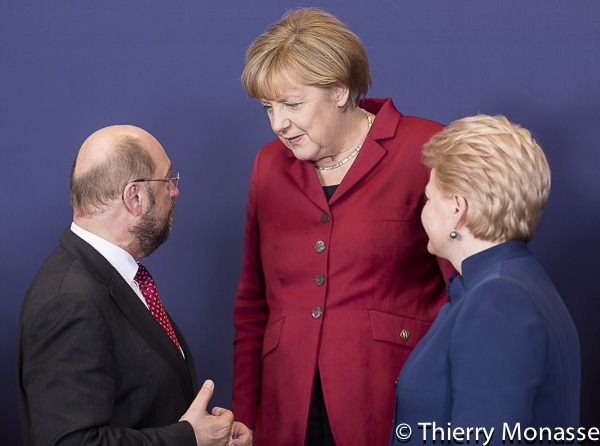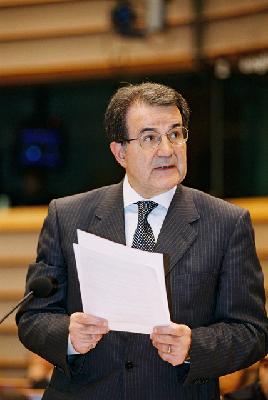Thanks Barrack!
(BRUSSELS2) The last European summit will have seen French and Germans united in a common initiative. Configuration rare enough in foreign policy to be reported and commented on. We had become accustomed, in recent months, to seeing the points of view of the Germans and the French diverge significantly, if not to be totally contrary, and the national diplomacies then work to reconcile these differences.
Whether on the intervention in Libya or the military strikes in Syria, on the arms embargo, there were many points of tension. The NSA's spying on Angela Merkel's cell phone, astutely made public today, like wiretaps in France, are now bringing the two allies closer together. Berlin and Paris can therefore say thank you to Barack... The United Kingdom keeping quiet, involved in the American eavesdropping system.
Same wavelength
There is the political approach, demonstrated by Angela Merkel, which aims at an explanation of text with the Americans. “Confidence is shaken. (...) We are allies, but such an alliance can only be built on trust. Spying between friends is not possible” Same wavelength with François Hollande. " We don't spy on each other among allies. In the very name of the relationship between Europeans and Americans or between France and the United States, we must do everything so that trust can be established”.
An economic issue
But the issue is not only political. It is economic and democratic, as François Hollande reminded us. " The question is not a problem of political information. Quite frankly, there are enough exchanges between heads of state that there are not many secrets that remain, especially between allies. The challenge is most often economic, because this data has a price. And finally, it is of course about freedoms, even if the goal is counter-terrorism and security. »
Technology is not enough
Paradoxically, the French president stresses that technological autonomy is not necessary... To think that it is simply because we ourselves would have control of the product that we could be protected from possible surveillance or interceptions, would be an illusion. This supposes, it is the direction of the approach which we engage, that the services themselves, have rules of conduct. »
Establish a code of conduct
What both countries want is define a non-spying agreement between European allies and with the United States. "Ensuring security, carrying out checks is legitimate. We are in a dangerous world, we should not let our guard down. ". Among these rules of conduct, Fr. Hollande traced three: “ The first rule is that we do not monitor or control the cell phones of people we meet at international summits. (Second) we inform each other. (Third) we do not store certain information that may jeopardize the freedom. »
Council Conclusions
“The Heads of State or Government discussed recent developments concerning possible intelligence issues and the deep concerns that these events have raised among European citizens.
They underlined the close relationship between Europe and the USA and the value of that partnership. They expressed their conviction that the partnership must be based on respect and trust, including as concerns the work and cooperation of secret services.
They stressed that intelligence gathering is a vital element in the fight against terrorism. This applies to relations between European countries as well as to relations with the USA. A lack of trust could prejudice the necessary cooperation in the field of intelligence gathering.
The Heads of State or Government took note of the intention of France and Germany to seek bilateral talks with the USA with the aim of finding before the end of the year an understanding on mutual relations in that field. They noted that other EU countries are welcome to join this initiative.
They also pointed to the existing Working Group between the EU and the USA on the related issue of data protection and called for rapid and constructive progress in that respect. »


